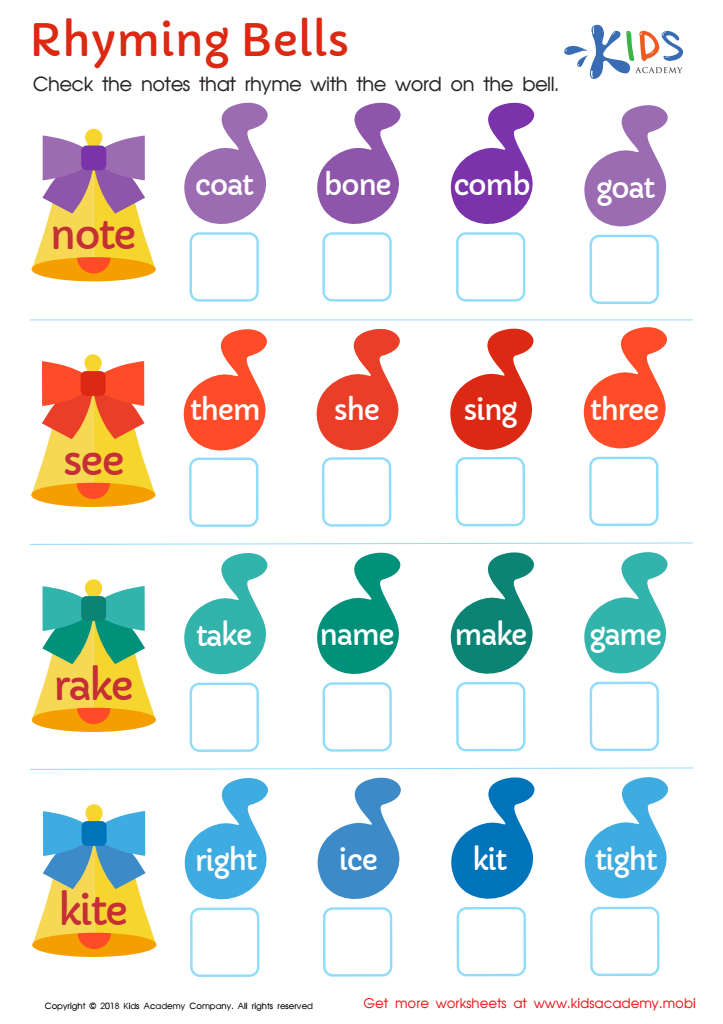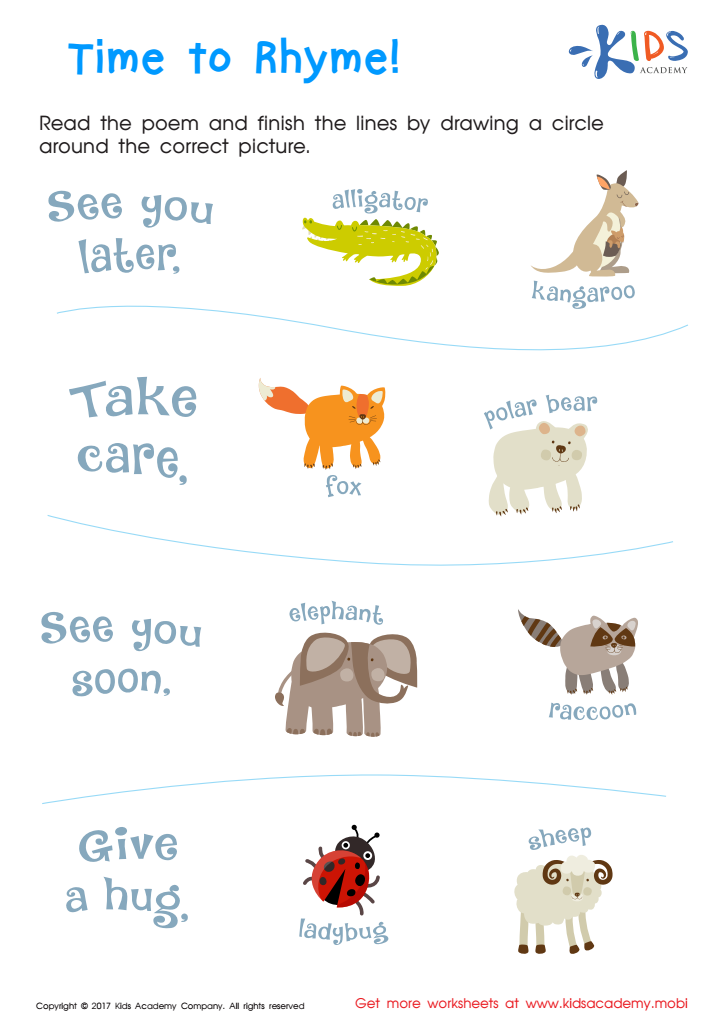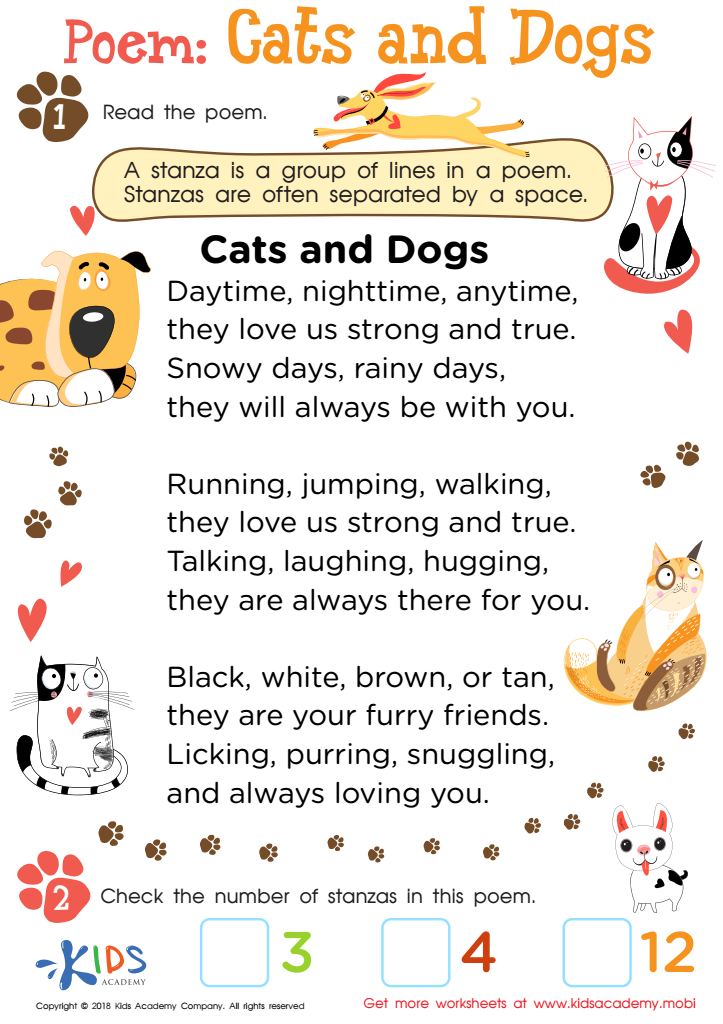Reading comprehension Normal Rhyming Worksheets for Ages 7-8
6 filtered results
-
From - To
Enhance your child's reading comprehension skills with our engaging Normal Rhyming Worksheets designed specifically for ages 7-8. These worksheets feature a variety of fun and relatable rhyming activities that not only entertain but also enrich literacy. Each exercise encourages critical thinking and helps children identify patterns, sounds, and meanings in words through playful contexts. As kids engage with these interactive materials, they develop essential skills that lay the foundation for confident reading and comprehension. Perfect for both classroom and home learning, these worksheets make reading an enjoyable experience, sparking a lifelong love for literature. Foster your child's learning journey today!


Rhymes in Poems Worksheet


Rhyming Words Rhyming Worksheet


Rhyming Bells Worksheet


First Words: Picture Rhymes Worksheet


Time to Rhyme Rhyming Worksheet


Poem: Cats and Dogs Worksheet
Reading comprehension is a crucial skill for children aged 7-8, and when incorporated with normal rhyming, it becomes an even more engaging learning experience. At this developmental stage, children's cognitive abilities accelerate, and their capacity to understand and enjoy literature expands. Rhyming texts can enhance phonemic awareness, making it easier for young readers to decode words and improve their vocabulary.
By integrating rhyming into reading comprehension activities, parents and teachers can foster a fun and interactive environment that enhances motivation and engagement. Rhymes often have a rhythm and melody that make them memorable, helping children to recall the stories and their key concepts more readily. This leads to a deeper understanding of the text and fosters a love for reading.
Moreover, rhyming encourages listening skills and strengthens patterns of speech, crucial for children’s overall language development. Parents and teachers caring about this aspect of literacy can help build a strong foundation for future academic success. Ultimately, enhancing reading comprehension through whimsical rhyming nurtures not just literacy skills but also creativity, making it a vital focus for caregivers in supporting children's educational journeys.
 Assign to My Students
Assign to My Students












